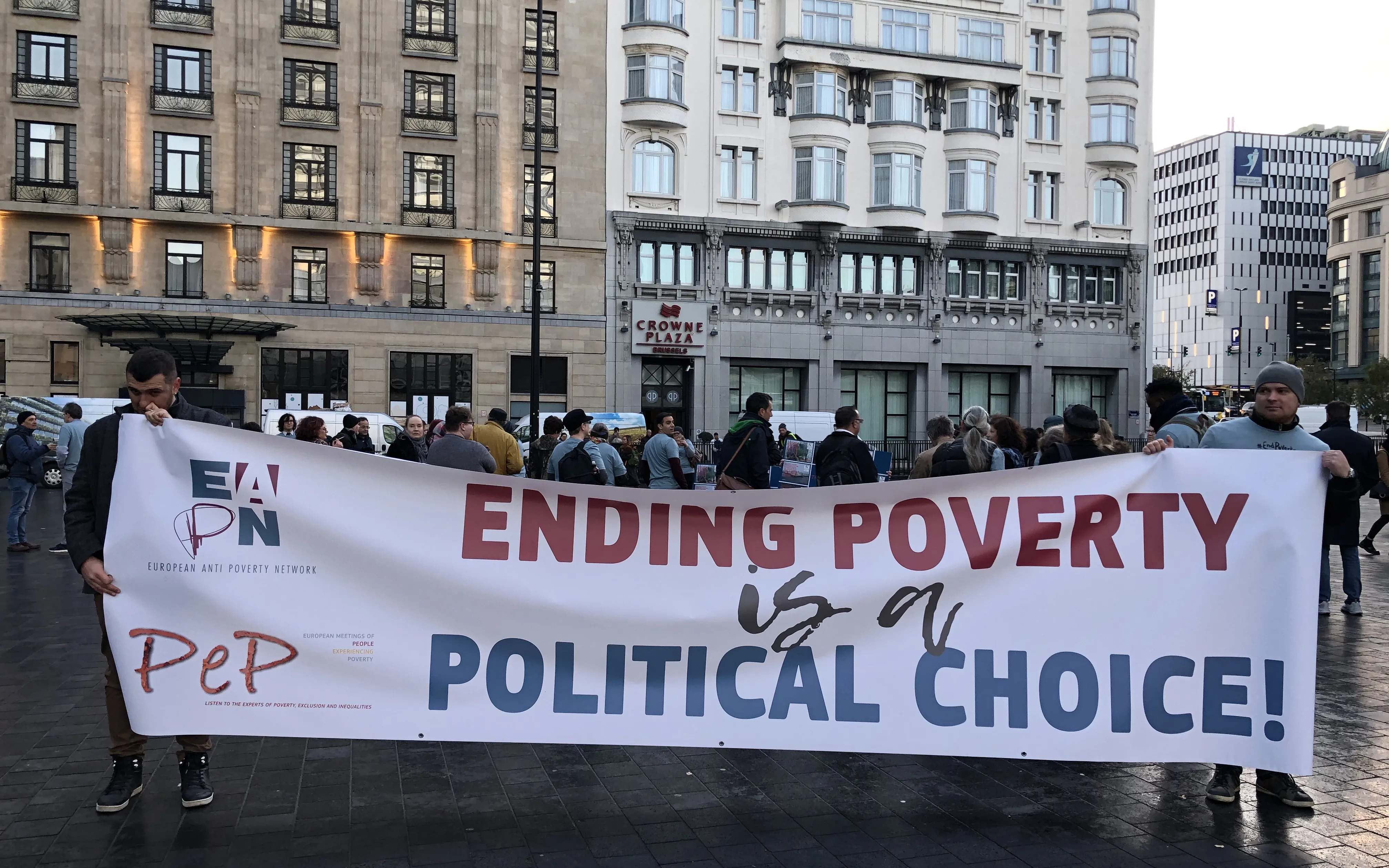Image

Europe has so far failed to take substantial action to ensure people’s access to adequate minimum income. We truly hope that this is about to change now.
In 2020, around 91 million people in Europe –more than one in five!- were at-risk of poverty or social exclusion. We know, based on experiences from the ground, that the Covid-19 pandemic deepened and widened this social crisis. European welfare states and healthcare systems have been put under pressure and the pandemic disproportionally hit people in poverty and vulnerable situations.
Before the recovery process of this crisis could really start, the Russian invasion of Ukraine is putting Europe in its darkest times since World War II. On top of (and partly as a result) this major violation of international law, energy prices have skyrocketed in the past months. Prices of food, housing, services, and the general cost of living are threatening the dignity and even the lives of millions of Europeans.
The multiple challenges and hardships that European citizens are facing cannot be tackled with one- off and temporary measures tackling symptoms and not structural causes of the problems. For Social Europe not to dismember, we need to strengthen its backbone.
In this context, well-designed and effective Minimum Income Schemes have a vital role to play. It is the income support benefit that should guarantee people income protection and a route out of poverty, particularly when combined with essential services, like affordable housing, health, and education, and by support to access decent jobs or to participate more fully in local communities.
EAPN has put a strong focus on Minimum Income Schemes, for many years, even decades. Our intense focus on and experience with the topic (based on years of debate, study, input from, and exchange with people experiencing poverty, NGOs, social partners, academics, and decision-makers) do not only illustrate the urgent need to deliver. It also shows our commitment and belief that a strong legislative instrument can make a real difference in the fight against poverty.
A Council Recommendation that delivers for people experiencing poverty? Despite the fact that the EU recognises this by giving increasing priority to soft policy mechanisms aiming to guarantee an adequate minimum income, it has so far failed to take substantial action to ensure people’s access to adequate minimum income. We truly hope that this is about to change now:
as announced by the European Pillar of Social Rights Action Plan, the European Commission will propose a Council Recommendation on minimum income in 2022 to ‘effectively support and complement the policies of Member States.‘
EAPN welcomes this initiative of the European Commission as the next step towards a more legally binding instrument. For this Recommendation to contribute to the poverty reduction goal of the European Pillar of Social Rights, it will need to strongly encourage the member states to guarantee Minimum Income Schemes that are adequate, accessible and enabling.
‘Adequacy’ means enough to live a life in dignity and to fully participate in the society, above the AROP (60% of the median equivalent disposable household income), whereby national reference budgets should be used to assess the adequacy of the AROP in each member state. When setting adequacy and coverage of MI, there should be a positive and poverty-proof hierarchy between minimum income, social security, and minimum wages to preserve right-based incentives to work for those who can, while guaranteeing a decent standard of living free of poverty for all.
‘Accessibility’ is necessary to make sure no one is left behind. Experiences from the ground give us an important insight into many obstacles, visible and less visible that impede people in need from benefitting from the income support they need. Recently, the digitalisation of services and the digital divide in society have strongly decreased the accessibility to income protection schemes.
There is a need for a universal right-based approach to an adequate minimum income that leaves no one behind, not only measures targeting specific vulnerable groups and restricted to the eligibility criteria.
The ‘Enabling character’ of minimum income schemes ensures that people can benefit from the necessary goods and services that empower them and create strength and opportunities to actively participate in society and/or the labour market. Punitive activation measures and strict conditionalities must be urgently reviewed.
As stated in its response to the Call for Evidence launched by the European Commission, EAPN strongly advises that -for the Recommendation to deliver for people experiencing poverty- it needs to start from a rights-based approach to minimum income protection and include clear and detailed monitoring and evaluation systems for implementation of MIS.
With our upcoming policy conference, we aim to contribute to a strong and ambitious Recommendation that genuinely delivers for people experiencing poverty, so that Adequate Minimum Income Protection can finally emerge as the ‘Backbone of a truly Social Europe’.



Add new comment